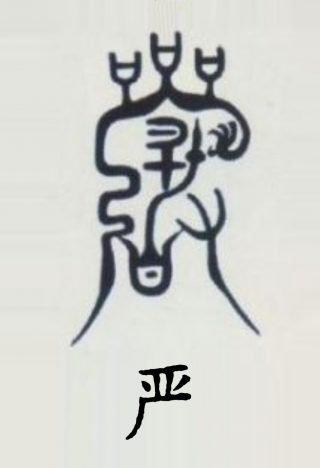Introduction
The Yan(yán) surname is a fascinating thread in the rich tapestry of Chinese history and culture. With origins dating back over 2,000 years, the Yan family has played a significant role in shaping China's political, philosophical, and literary landscapes. This article explores the origins, historical figures, cultural significance, and modern influence of the Yan surname, offering a comprehensive look at its enduring legacy.

gration
Ⅰ、Origins: A Story of Adaptation and Integration
The Yan surname's origins reflect the dynamic interplay of Chinese naming traditions, political changes, and cultural integration.
1.The Zhuang-Yan Transition
The primary origin of the Yan surname lies in the Zhuang surname. During the Eastern Han Dynasty (25–220 CE), to avoid the naming taboo of Emperor Ming (whose given name was Zhuang), the Zhuang family changed their surname to Yan. This historical event is one of the most famous examples of naming taboos in Chinese history.
2.Royal Connections: The Chu State Legacy
Another branch of the Yan surname traces its roots to the descendants of King Zhuang of Chu (a ruler during the Spring and Autumn period). His descendants adopted "Zhuang" as their surname, which later evolved into "Yan" due to the naming taboo.
3.Ethnic Integration
During the Northern Wei Dynasty, the Xianbei ethnic group adopted the Yan surname as part of their sinicization process. Later, Manchu and Mongolian groups also contributed to the Yan surname's diversity.
4.Occupational Origins
In ancient China, "Yan" (yán) meant "strict" or "solemn." Some families adopted the surname because their ancestors held positions related to law enforcement or supervision.
Ⅱ、Historical Figures: From Hermits to Visionaries
The Yan surname has produced an array of remarkable individuals who have left indelible marks on Chinese history and culture.
Yan Guang (37 BCE–43 CE)
A hermit and close friend of Emperor Guangwu of Han, Yan Guang famously refused high office to live a reclusive life by the Fuchun River. His story symbolizes integrity and independence, inspiring countless generations.
Yan Zhenqing (709–785)
A Tang Dynasty calligrapher and statesman, Yan is celebrated for his distinctive calligraphy style, which remains a cornerstone of Chinese art.
Yan Fu (1854–1921)
A pioneering translator and thinker, Yan introduced Darwin's theory of evolution to China through his translation of Evolution and Ethics. His work sparked intellectual debates that shaped modern Chinese thought.
Ⅲ、. Cultural Significance: A Legacy of Values and Traditions
The Yan surname embodies key aspects of Chinese culture, from philosophical ideals to family values.
1.The Hermit Ideal
Yan Guang's reclusive lifestyle became a symbol of the Chinese ideal of living in harmony with nature, free from political entanglements.
2.Family Values and Education
The Yan Family Instructions, a classic text on family ethics, emphasizes education, moral integrity, and social responsibility. These values have been passed down through generations.
3.Cultural Symbols
The Fuchun River, associated with Yan Guang, has inspired countless poems and paintings, including the famous Dwelling in the Fuchun Mountains.
The Yan surname is linked to the philosophical concepts of "wood" (representing resilience) and "water" (symbolizing adaptability) in traditional Chinese thought.
Ⅳ、 Modern Influence: Bridging Tradition and Innovation
The Yan surname continues to make an impact in contemporary society, both in China and globally.
1.Educational Contributions
Yan Xiu, a modern educator, co-founded Nankai University, one of China's most prestigious institutions, which has produced notable alumni like Zhou Enlai.
2.Scientific Achievements
Yan Ming, a leading archaeologist, has made groundbreaking discoveries in the study of ancient Chinese civilizations.
3.Global Presence
The Yan surname is found in Chinese communities worldwide, from Southeast Asia to North America, reflecting the global diaspora of Chinese culture.
Ⅴ、Conclusion
The Yan surname is a testament to the resilience and adaptability of Chinese culture. From the reclusive ideals of Yan Guang to the intellectual contributions of Yan Fu, and from the artistic legacy of Yan Zhenqing to the modern achievements of Yan Xiu, the Yan family has consistently bridged tradition and innovation. As we move further into the 21st century, the Yan surname continues to inspire, reminding us of the enduring power of cultural heritage.